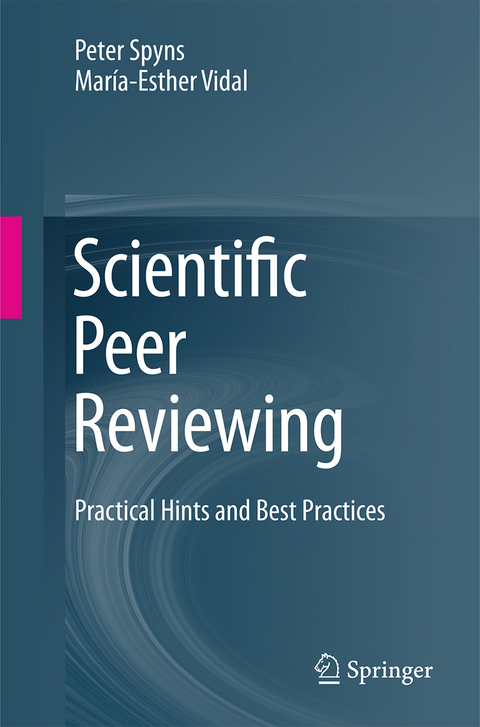
Scientific Peer Reviewing
Springer International Publishing (Verlag)
978-3-319-25083-0 (ISBN)
This booklet provides a practical introduction to the practice of peer reviewing. Although it mainly focuses on paper reviewing for scientific events in computer science and business informatics, many of the principles, tips, tricks and examples can also be applied to journal reviewing and other scientific domains. Some can also be used when reviewing proposals for research projects or grants. In addition, many aspects of the book will benefit authors of scientific papers, who will gain deeper insights into how papers are reviewed and hence what to pay attention to when writing their own papers.
The book is divided into three chapters, the first of which presents a brief overview of why peer reviewing is considered to be an important quality control instrument for scientific papers. In turn, the second chapter elaborates on the main principles a good reviewer should adhere to, including the most important aspects of personal attitude s/he should pay attention to when writinghis/her review. Lastly, the third chapter features a series of (anonymized) real life examples of actual reviewing practice, thus illustrating practical tips and tricks regarding the most common "do's" and "don'ts" of peer reviewing.
The book offers a structured introduction and practical reference guide, including good and bad examples, for junior researchers in computer science and business informatics in particular, as well as for anyone interested in peer reviewing in general.<
Peter Spyns is a civil servant working at the Flemish Department of Economy, Science and Innovation. Currently, his major task is to coordinate within the department international policy issues on science and innovation. As such he participates in many high level strategic advisory committees and policy groups at European and Belgian levels. Prior to his work at the Flemish administration, Peter’s career spanned about 20 years as a researcher in both academia and industry. During this period, he regularly acted as a reviewer for conferences and journals. Peter has also co-organized the OnTheMove Academy, a tutored workshop for PhD students, since 2004, which inspired him for this booklet. Maria-Esther Vidal is a Full Professor with the Computer Science Department at Universidad Simón Bolívar, Venezuela, where she leads the Semantic Web Group. She has mentored and advised seven Ph.D. students, more than a dozen of Masters, and more than 100 undergraduates, and has been awarded Best Professor of the Year in 2000, 2004, and 2012. She is part of the editorial board of several highly reputed journals, and her research results have been published in the most prestigious journals and conferences in artificial intelligence, data base systems, and bioinformatics.
"This is an excellent small volume to keep on one's desk and make available to graduate students, post-docs, and junior colleagues, who can get quite excited about being offered the chance to review but also may need guidance. It will also be of use to organizers of panels who request reviews. The points raised in this booklet can help in engaging a poor reviewer. I am sure I will be circulating my copy to many colleagues." (Sara Kalvala, Computing Reviews, computingreviews.com, October, 2016)
| Erscheinungsdatum | 02.12.2015 |
|---|---|
| Zusatzinfo | X, 57 p. |
| Verlagsort | Cham |
| Sprache | englisch |
| Maße | 155 x 235 mm |
| Themenwelt | Sachbuch/Ratgeber ► Natur / Technik |
| Schulbuch / Wörterbuch ► Lernhilfen | |
| Mathematik / Informatik ► Informatik | |
| Sozialwissenschaften | |
| Schlagworte | Computer Science • Computing Milieux • Good Scientific Behavior • Peer Reviewing • Popular Science, general • Publication Ethics • Science, general • Scientific Quality Assurance • Scientific Standards |
| ISBN-10 | 3-319-25083-3 / 3319250833 |
| ISBN-13 | 978-3-319-25083-0 / 9783319250830 |
| Zustand | Neuware |
| Haben Sie eine Frage zum Produkt? |
aus dem Bereich


